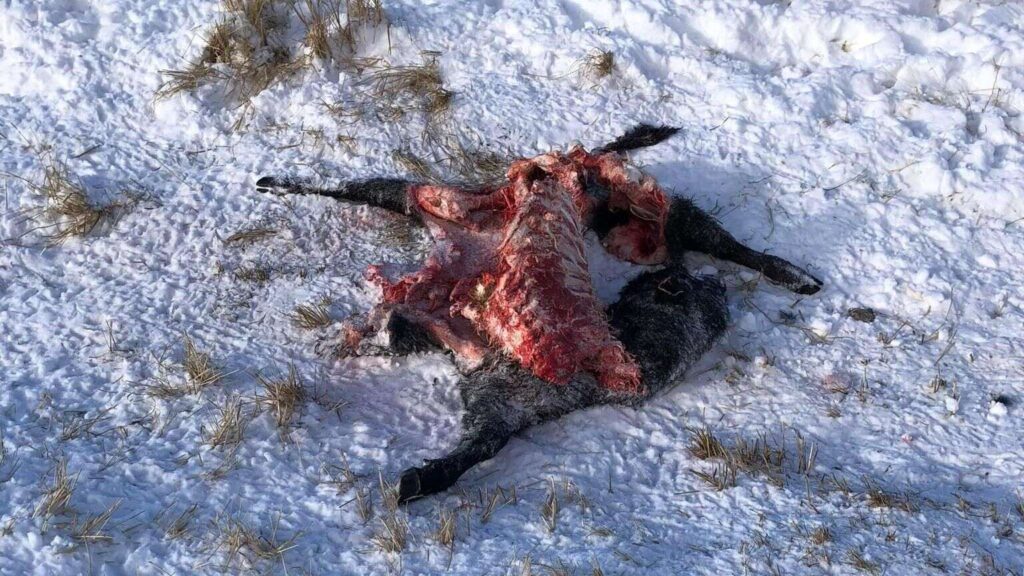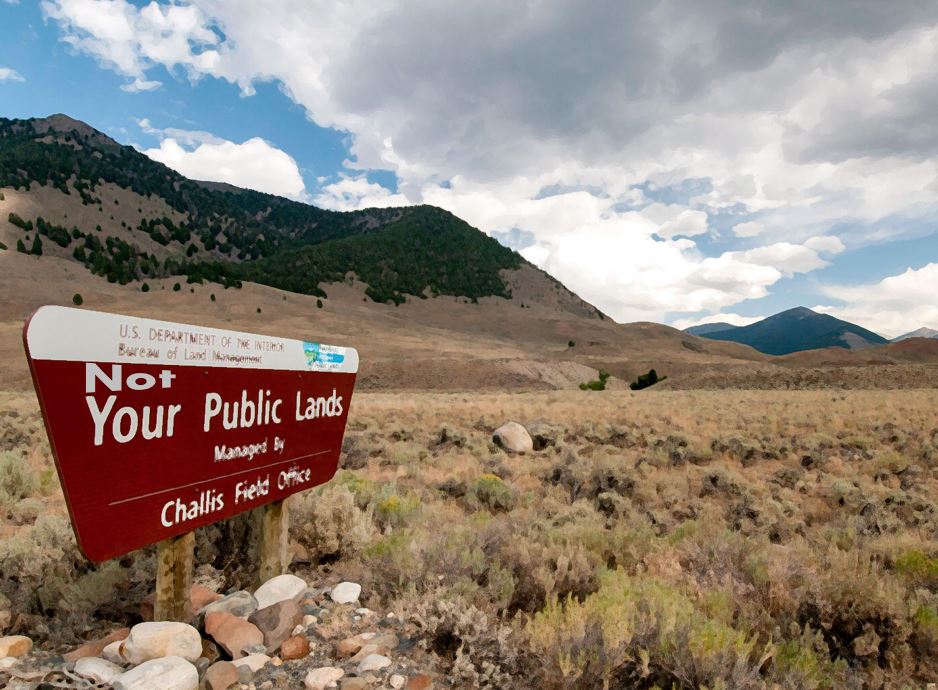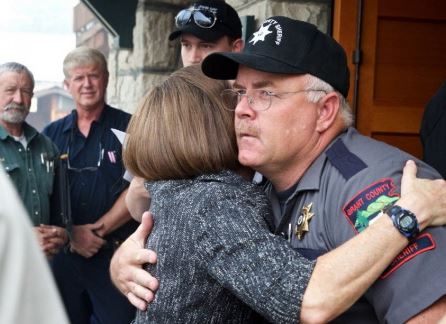Colorado Parks and Wildlife Commission overturns staff on wolf kill, orders payment to rancher

Marianne Goodland
Colorado Politics
Over the last year, a common issue between Colorado Parks and Wildlife and ranchers is the state agency’s slow response in investigating wolves killing livestock and how a lack of training leads to incorrect determinations.
Last week, the Colorado Parks and Wildlife Commission rejected a staff recommendation to deny a claim for a calf killed by a wolf on a Silver Spur ranch near Walden. The commission instead voted to approve the payment, ordering the wildlife agency to reverse its original decision that it was not a wolf kill.
The commission voted, 5-4, to reject the staff recommendation and identically to approve the payment.
State law allows up to $15,000 per livestock animal on a depredation claim. This is the first time CPW staff has been overruled on a claim denial.
Commissioners who voted in favor of paying the claim cited the age of the calf killed by the wolf last May on a Silver Spur Ranch property. An attorney representing Silver Spur, Nick Haderlie, told the commission on Oct. 3 that the calf was three months old, and that’s not a calf that would be attacked by a coyote, as was claimed by CPW’s Jackson County district wildlife manager Jacob Way.
Haderlie pointed out that CPW staff did not follow agency rules in the claims process, which raised the question of just how much CPW staff know about conducting wolf depredation investigations.
CPW’s Luke Hoffman said the claim was denied based on CPW regulations. These regulations require the claimant to prove with a preponderance of evidence — more likely than not — that a wolf killed the calf.
He said the calf was only a month old and had mostly been consumed, making it difficult for Way to investigate. There were also minor puncture wounds, about an inch apart. A 20 to 30-pound coyote’s teeth are spaced at that distance, whereas a wolf’s spacing is 1.5 inches to two inches. That supports coyote depredation versus wolf depredation, Hoffman said.
He pointed out that there were also coyote tracks near the carcass. After Way finished the investigation, he offered the carcass to the ranch so it could do an independent investigation or get a second opinion, which he said the ranch declined.
Hoffman also disputed the claims, including those made during public comment just minutes earlier, that CPW staff do not know what wolf depredations look like and are not adequately trained to do these investigations.
“This is contrary to what CPW has been working hard to do the last several years,” Hoffman said. “There’s many very skilled CPW staff who really know the differences between what coyote, wolf and big game depredations characteristics look like. Those people serve the communities they work with.”
Haderlie pointed out that Silver Spur has ranches in four states and has been an active partner with the state. That includes allowing state access to its private lands for logging and other state land management needs. About 140,000 acres of Silver Spur land is enrolled in the state’s ranching for wildlife program, making private land available for hunting and wildlife management. It is one of the top 10 cow-calf producers in the country, Haderlie said, adding it has a long history of working cooperatively with the state, including CPW.
Silver Spur ranches date back to the 19th century. They are currently owned by telecommunications pioneer John Malone, who bought them in the 1980s.
The claim was submitted on May 8, but Way asked them to resubmit the application with a different date after staff had allegedly denied it. “We felt that was inappropriate. ” They should have just processed the application that was presented, Haderlie said.
In a phone conversation on May 10, Haderlie said Way indicated he would follow up with all the evidence CPW looked at and investigative materials. Haderlie said he never heard from Way again.
A month later, the ranch got a letter dated June 10 denying the claim and citing regulations without explaining how those regulations applied to the claim, Haderlie said.
“You’re on your own to figure it out,” Haderlie characterized the letter as telling them. It did not include any information on the basis for the denial.
Haderlie denied Hoffman’s assertion that CPW had offered the carcass to the ranch for an independent investigation. Haderlie said that if it had been provided to an employee on the grounds, which would have been inappropriate, it should have gone through him. Despite asking for the evidence, it was never provided despite their asking for it.
Once they got it, they tried to find a biologist to look at the necropsy. “It seems most biologists with wolf expertise are not inclined to help ranchers,” Haderlie said.
Haderlie pointed out that CPW rules require the area wildlife manager to confer with the claimant within 30 days of receipt of the claim to settle. That also never happened, Haderlie said, adding, “No effort to meet with us short of being here today.”
Wolf or coyote?
He said the carcass had clear signs of wolf presence as to the claim itself. Four-inch tracks were near the carcass, and Haderlie said that, while Way was careful not to call them wolf tracks, CPW never disputed it.



